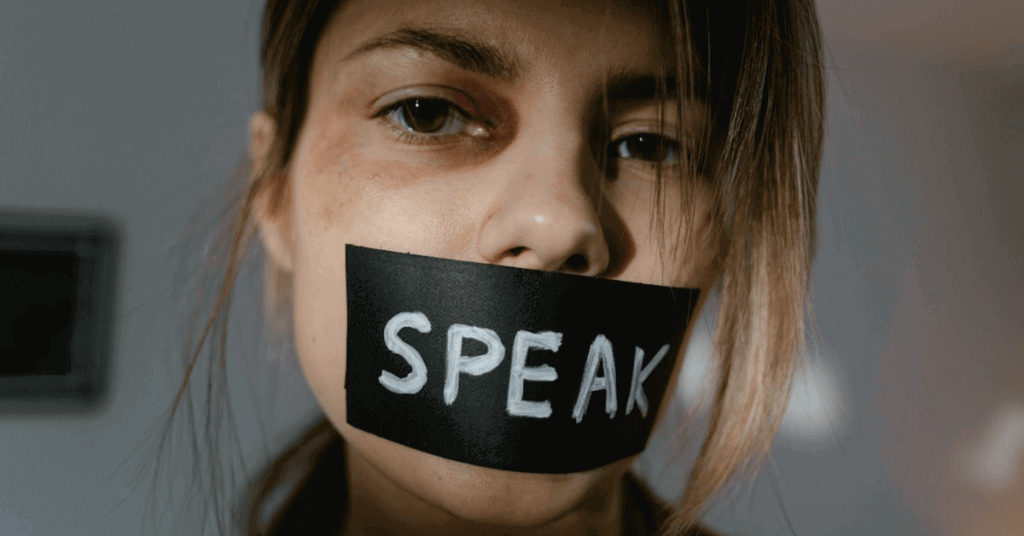Yes, Apprehended Domestic Violence Order (ADVO) victims may withdraw their statements. However, the decision to continue or halt a case ultimately rests with the police.
The victim will not be charged if they withdraw an AVO statement.
However, they may be charged if the victim makes a false accusation in AVO statement. They can also be accused of perverting the course of justice. This happens when they confess to providing false information or lying in original statement.
Making a fraudulent AVO claim is technically not a crime (since AVOs are orders and not charges). However, false accusations are punishable under section 314 of the NSW Crimes Act 1900.
Table of Contents
ToggleAuthorities’ Response Withdrawing a Statement in a Domestic Violence Case
The authorities will take the following actions when a victim retracts ADVO statements:
- Assess the situation: Police or courts will examine the circumstances surrounding the victim’s request. They aim to determine whether fear, harassment, or other factors influenced the victim’s decision to withdraw the statement.
- Consider the evidence: In the absence of a victim’s statement, the authorities will examine the remaining evidence to determine if there is still a strong case. If enough evidence exists, the prosecutor may elect to pursue the case.
- Support and protection: The police may provide extra support and protection measures if a victim withdraws a statement out of fear or intimidation.
- Consultation with the victim: If the victim has concerns, the police or court may consult them. The authorities will consider the victim’s wishes, but deciding to proceed or abandon the case rests with them.
Also read: Victim Mentality Signs and its Link to Domestic Violence
Consequence of Withdrawing a Statement in a Domestic Violence Case
The police or court decide how to proceed when a victim withdraws their statement in an ADVO case.
The outcome depends on the reason for withdrawal, the remaining evidence, and the risk to the victim. After a victim withdraws their AVO statement, the following could occur:
Case dismissal
Without the victim’s statement, the prosecution may decide to withdraw the charges, and may not pursue the AVO. This indicates that the alleged defendant would not be subject to the order’s restrictions or conditions.
Proceeding with the case
In many instances, the police pursue the AVO case without the victim’s statement. Evidence from witnesses, physical evidence, or documentation could support the allegations.
Reassessing the victim’s safety
If a victim withdraws a statement due to fear or intimidation, authorities may still attempt to purpose the matter.
This ensures the victim’s safety by providing support, developing a safety plan, or connecting the victim with resources.
Re-evaluating the case
The authorities may collect new evidence or witness testimony as part of their investigation. A victim may recant a statement for various reasons. This may entail interviewing additional witnesses or gathering further documentation.
Negotiating an agreement
In some instances, parties may be able to reach an agreement or resolution without a formal AVO. This may involve negotiating conditions. This includes no-contact orders or consenting to mediation or counselling.
Also read: What Comes Under a Domestic Violence Case in Australia
How to Successfully Recant a Domestic Violence Statement
Recanting a domestic violence statement involves a delicate process that must be approached with caution and legal guidance.
Firstly, the individual should contact their legal representative to discuss the reasons for recanting and to understand the potential consequences.
It is important to provide a consistent and truthful explanation, as inconsistent statements may undermine credibility.
The legal representative will then communicate with the prosecution and the court to formally request the withdrawal of the statement.
This may involve submitting a written affidavit explaining the reasons for recantation.
Secondly, the court will assess the request to recant the statement. The prosecution may still choose to proceed with the case if there is sufficient evidence, even without the victim’s statement.
The court may also investigate whether the recantation is being made under duress or threat.
It is important to note that falsely recanting a statement or admitting to having provided false information initially can lead to legal repercussions, such as charges of perjury or obstruction of justice.
Therefore, recanting a domestic violence statement should be done with thorough legal consultation and a clear understanding of the potential outcomes.
Conclusion
Question: Can I withdraw my statement in a domestic violence case?
Answer: While it might be possible to withdraw a statement, doing so could have various consequences. This includes:
- potential charges if false information is provided, or
- if the action is seen as perverting the course of justice.
An Apprehended Violence Order or other legal measures may still be pursued even if a victim withdraws their statement.
Need To Withdraw Your AVO Statement?
At Justice Family Lawyers, we understand the complexity of AVOs and ADVOs, and we are committed to providing our clients with the highest quality legal advice and representation.
Our AVO lawyers and practitioners are highly experienced and knowledgeable, and we are committed to helping our clients receive the best possible outcome.






16 thoughts on “Can I Withdraw My Statement In A Domestic Violence Case”
Can i withdrawn my allegations to my ex?
Hi Sandra, you cant withdraw your allegations however you can explain to the court what happened and ask the police to withdraw the case. You can speak to our office to assist you with this process.
How would a person go about withdrawing a statement, if they are worried about
The police or court will consider various factors, including the reason for withdrawal, remaining evidence, and risk to the victim. Even if you withdraw your statement, the case might still proceed based on other evidence. The decision to continue or drop the case ultimately lies with the police, not the victim.
How can I withdrawal my dvo statement against my partner as I said some things out of anger
Withdrawing a Domestic Violence Order (DVO) statement can be a complex process, and the specific approach can vary by state or territory. Here are some general steps for you to consider:
Seek Legal Advice:
Before taking any action, we recommend that you contact an experienced solicitor to understand the implications of withdrawing your statement and the potential legal consequences.
Contact the Police:
If you made a statement to the police that led to the DVO, you can contact them and explain that you wish to withdraw or amend your statement. However, it is important to understand that once the police have started proceedings, they may decide to continue with the case even if you wish to retract your statement.
Attend Court:
If a court date has been set for the DVO hearing, you should attend. If you fail to appear, the court can make a decision in your absence.
At the court hearing, you can tell the magistrate about your wishes. However, the final decision on whether to continue with or dismiss the DVO lies with the court.
Considerations:
Understand that withdrawing a statement can have implications. For example, if you admit to providing false information to the police, there may be legal consequences.
Importantly, if the DVO was put in place to protect you, ensure that you genuinely feel safe and that your desire to retract the statement isn’t due to external pressures or coercion.
What are the implications if I gave false information to the police and want to retract my statement?
The consequences of providing false information to the police can depend on the nature and severity of the allegations you have made and could potentially result in charges, fines and even in some cases imprisonment. Once you admit to providing false information, your credibility as a witness in any related or future legal proceedings may also be questioned. This could impact current and future legal matters. It is advisable to first consult with a lawyer before updating or retracting a statement.
Hi I want to drop the DVC against my ex as we have now sorted our differences out and working on our friendship
If you are not in any fear for your safety or being coerced into removing the order, you can apply to the court to have the DVO varied or revoked. The court will consider whether this change is in the best interests of your safety and well-being.
Can the accused make a separate claim / call to the police if they have been been assaulted for the same matter? Will police take on the case if they are already prosecuting? If a person has been charged with assault but has new evidence that the victim was actually the assaulter, what could they do?
The police could lay new charges and a separate claim. In practice, this does not happen often.
Hi what’s the process for charges are withdrawn early by negotiating with the prosecution throughout the court
proceedings, resulting in a dismissal of the charges on a domestic violence case 1st time offender.
Hi
Please get in contact with our team for a consultation. We can assist with writing represenations to the police to hve the charges dropped.
hi i need advise from lawyer about avo case i want to withdraw my statement can you please help me way out
It is important to understand that once the police have initiated proceedings for an AVO, they may decide to continue with the case even if you wish to retract your statement.
To seek to have the AVO withdrawn, we recommend that you consider the following steps:
Prioritize Safety: First and foremost, ensure your decision isn’t influenced by coercion and prioritise your safety if the DVO is protective in nature.
Seek Legal Advice: Engage with a solicitor to understand the implications and potential consequences of withdrawing your statement.
Contact the Police: You can express your desire to retract or modify your statement. However, the police may still proceed based on the existing evidence.
Attend Court: Ensure you’re present at any scheduled DVO hearing. Absence could result in the court deciding without your input. Though you can voice your preferences, the magistrate holds the final decision.
Be Aware of Consequences: Understand that retracting a statement can have repercussions, especially if you admit to giving false information.